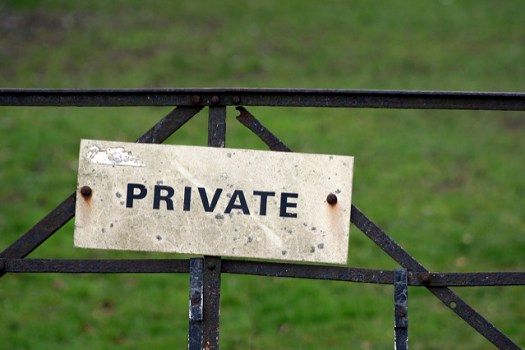Ivory tower dispatch: Social networks are personal

Over the last semester I’ve been spending a lot of time talking about the use of social networks; how and why they might be useful/important/problematic to journalists. But over the months I’ve been hearing an increasingly common complaint from students. The gist of the complaints is something like this:
Stop telling us to use social networks. What we do with social networks is up to us.
The implication is that social networks are personal and not up for grabs as part of the syllabus. Us telling them what to do with their social network would be like us telling them who they could be friends with or what to where. Butt out of our personal lives!
I had to think a little about whether* I actually was* telling people to use social networks and, reflecting on it, I have to say that yes I was. A bit.
I was telling people that they should sign-up and explore things like Facebook and Twitter because I felt that they were important things to experience and understand as journalists and not just as users. But what I’ve never done is say that people must use their* own* social networks for that.
In fact I’ve made a lot this year of how you might separate the two things; How important it is that when you do use social networks as a journalist, you do think about how much of you (as your personal social networks represent you at least) you want to see. That might mean, for example, creating a new Gmail account and using that to build new accounts that are ‘work’ related.
The response to that is often, I don’t want another account to manage. Which I find quite an odd thing as it kind of suggest that because you use Facebook to manage your social life you’ll never be able to use it as a journalist What a missed opportunity!
**Person or professional? **
For me, understanding the line between personal and professional is really important when it comes to social media and journalism. There have been numerous examples of people falling foul of social media searching at job interview. And things don’t get easier once you have the job. Stories of journalists coming in to conflict with their masters over social media use are increasingly common. But, thinking about it, maybe there is a case for intruding a little on students personal social media habits.
It’s not just the old standard of employment* if you saw you on Facebook, would you give you a job?* I sense an increase in the numbers of people finding the content of their personal accounts putting them in a legal (and often moral) line of fire. So in this post-Leveson world where, journalists are having to aspire to higher moral and ethical standards than the audience, isn’t it fair to say that the personal is also up for scrutiny?
OK, in reality, that’s a line I wouldn’t cross. I’m not going to demand to see (and grade) students social media output to assess professionalism. What students do in the privacy of their own social media world is up to them – at least I hope they have thought about the distinction between private and public! But the idea that this means I can’t talk to them about and yes, maybe make them, temporarily at least, sign-up for Twitter or Facebook is not something I can buy in to. But maybe I’m wrong. Maybe the developing norm is that social media isn’t where journalism should be. Maybe we should all just be people. Maybe social media is now ‘another country’ where different rules apply.
What do you think? Am I getting old? Just not getting it?
Picture: Nic Walker on Flickr
